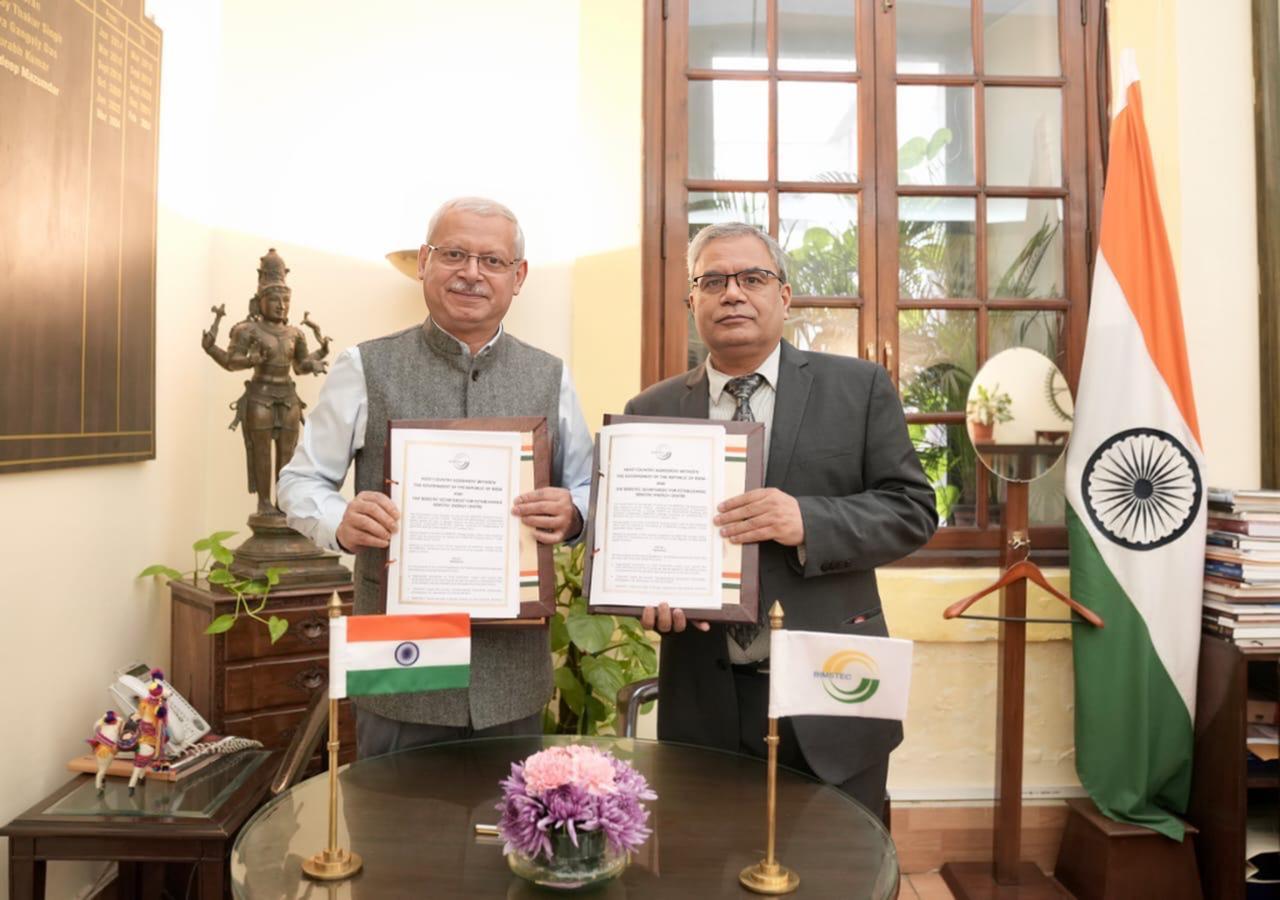
DHAKA, Nov 10, 20254 (BSS) – BIMSTEC Secretariat and Indian government have signed the Host Country Agreement for establishing BIMSTEC Energy Centre (BEC) in Bengaluru.
BIMSTEC Secretary General Indra Mani Pandey and Secretary (East) of Indian External Affairs Ministry signed it on behalf of their respective side on Friday, a BIMSTEC press release said here today.
The establishment of BEC has been seen as a step towards promoting regional cooperation in energy sector within BIMSTEC framework, which is led by India. India also leads the Security and Disaster Management Sectors, said the release.
The BEC will manage a regional energy database, conduct feasibility studies for intra-BIMSTEC projects and enhance cooperation by preparing a framework for networking among national agencies of BIMSTEC member States.
It will promote energy security through grid interconnections, renewable energy development and realization of energy efficiency. Moreover, the Centre will foster capacity building, cross-border investments and infrastructure development for training in energy sector.
It may be noted that a Plan of Action for Energy Cooperation was adopted by the BIMSTEC Energy Ministers’ Conference in 2005.
The MoU for establishing the BIMSTEC Grid Interconnection has been in force since April 2019.
The BIMSTEC policies for Transmission of Electricity and for Trade, Exchange of Electricity and Tariff Mechanism are being finalized while a BIMSTEC Grid Interconnection Master Plan is also under discussion.
BIMSTEC Energy Cooperation has focused on promoting renewable energy, improving energy efficiency, developing cross-border energy trade and undertaking grid interconnections, which aim to ensure energy security, transition to green energy and sustainable development in the Bay of Bengal region.
BIMSTEC comprises seven countries of the Bay of Bengal region: Bangladesh, Bhutan, India, Myanmar, Nepal, Sri Lanka and Thailand.
It pursues regional cooperation in seven broad sectors: Agriculture and Food Security; Connectivity; Environment and Climate Change; People to People Contact; Science, Technology and Innovation; Security; and Trade, Investment and Development.
The cooperation also covers eight sub-sectors: Blue Economy, Mountain Economy, Energy, Disaster Management, Fisheries and Livestock, Poverty Alleviation, Health and Human Resource Development.